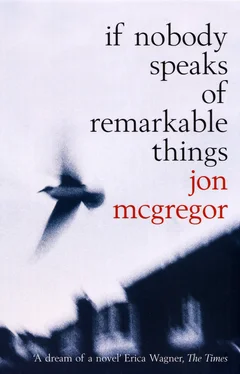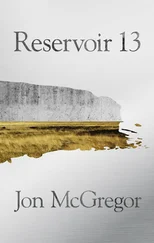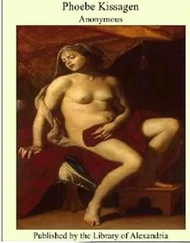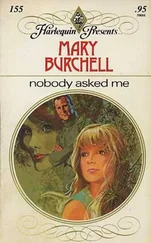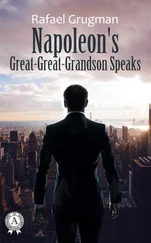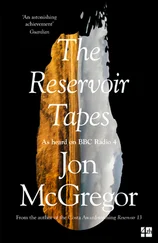Jon McGregor - If Nobody Speaks of Remarkable Things
Здесь есть возможность читать онлайн «Jon McGregor - If Nobody Speaks of Remarkable Things» — ознакомительный отрывок электронной книги совершенно бесплатно, а после прочтения отрывка купить полную версию. В некоторых случаях можно слушать аудио, скачать через торрент в формате fb2 и присутствует краткое содержание. Год выпуска: 2003, Издательство: Bloomsbury Publishing Plc, Жанр: Современная проза, на английском языке. Описание произведения, (предисловие) а так же отзывы посетителей доступны на портале библиотеки ЛибКат.
- Название:If Nobody Speaks of Remarkable Things
- Автор:
- Издательство:Bloomsbury Publishing Plc
- Жанр:
- Год:2003
- ISBN:нет данных
- Рейтинг книги:4 / 5. Голосов: 1
-
Избранное:Добавить в избранное
- Отзывы:
-
Ваша оценка:
- 80
- 1
- 2
- 3
- 4
- 5
If Nobody Speaks of Remarkable Things: краткое содержание, описание и аннотация
Предлагаем к чтению аннотацию, описание, краткое содержание или предисловие (зависит от того, что написал сам автор книги «If Nobody Speaks of Remarkable Things»). Если вы не нашли необходимую информацию о книге — напишите в комментариях, мы постараемся отыскать её.
If Nobody Speaks of Remarkable Things — читать онлайн ознакомительный отрывок
Ниже представлен текст книги, разбитый по страницам. Система сохранения места последней прочитанной страницы, позволяет с удобством читать онлайн бесплатно книгу «If Nobody Speaks of Remarkable Things», без необходимости каждый раз заново искать на чём Вы остановились. Поставьте закладку, и сможете в любой момент перейти на страницу, на которой закончили чтение.
Интервал:
Закладка:
And so they pick him up, Shahid, they lay him on a stretcher and they roll the stretcher into the ambulance. And his mother gets into the ambulance with him, and as the ambulance driver closes the doors he meets the eyes of the paramedic and an understanding passes between them. The ambulance leaves the street, the siren is sounding but the vehicle is not moving as fast as it could be.
The man with the sponge, dabbing at his forehead with an unfolded white handkerchief, he offers to drive the father and the children, the father calls to his daughter, she comes running from the house and they all squeeze into his shining car and disappear around the corner.
And that’s all there is. That’s it. There is no pause or rewind, there is no image enhancement, no recording of the moment beyond a thick streak of black rubber smeared across the road, a stain which itself will soon fade. Later, the police may come and take measurements, make estimates regarding speed of impact, suggest possible causes. They might ask people living in the street what they saw this afternoon, what exactly did they see please. Later, possibly, a court will sit silently considering the facts and opinions, and maybe they will pass judgement upon the young man still sitting in his new car. But the moment will never be again, the moment is gone.
The two girls on the front step of number twenty-two, sitting and watching and not speaking, they look at the girl with the long straight hair, the girl whose lips still taste of the young boy’s mouth, they look to her as she walks towards them. She stops, and she crouches by them, she says no, no chance, he was already, he had no chance, and she stands and walks into her house, and the boy with the soapy trainers stands and follows her and closes the door.
The young man at number eighteen, sitting low in his sofa and holding his chest, he can think of nothing else, he will never think of anything else. I could have saved him is what he is thinking, I could have, there was something, maybe, and then underneath this thinking, shamefully, there is the thought that she was watching and she would have seen.
The thin bearded man, from number thirteen, he picks up his son from the floor, he kisses him gently on the cheek and whispers something to him, he holds him to his chest and picks up his tricycle with the other hand, he carries his son back to his house. As they pass number seventeen, the father catches the eye of the boy with the shirt and tie, standing in his doorway, but nothing is said and they both look away. And the son pokes his head above the father’s shoulder, like a soldier from a trench, he stares at the end of the street, he blinks once and he stares.
At the end of the street, the man with the ruined hands stands with his arms wrapped around his daughter, he watches the traffic on the main road, re-forming after the ambulance’s passing, like the surface of a pond stilling from a stone’s entry.
He thinks of the boy’s mother, saying his name, he echoes her, he mouths the words, Shahid Mohammed, Shahid Nawaz, he wants to call it out loud, he lifts his face and lets his lips shape the words, miming a bellow, Shahid Mohammed, Shahid Nawaz, he thinks oh Allah have mercy let the whole world hear. He imagines what would happen if the whole street called his name, joining with the mother’s small voice, the whole street lifting the words and the words spreading through this city, taking flight like a flock of birds at dusk, clouding the sky, the voices allpresent, across fields and forests and oceans, sent out, transmitted, broadcast, on BBC and CNN, satellite and terrestrial and international optic fibres, on billboards and buses and videoscreens, on flyers and posters and newsjournals and magazines, the information, the name, pouring down from the sky like electronic rain, out from this one street and sucked down into the lightning-rod antennas that bristle from mansions and shantyhouses across all our misconnected world, a chorus of name-saying, a brief redemptive span of attention.
He imagines this, he whispers the name alone, Shahid Mohammed, and his voice does not rise even above the sound of a passing car.
But he whispers it all the same, like a prayer, he has no faith but the words keep coming, he thinks oh inshaallah let the whole world hear, let the whole world listen for a moment, his name is Shahid, Shahid Mohammed Nawaz, and he is dying.
Halfway across the city, in the back of the ambulance, Mrs Nawaz is holding her son’s hand. She is talking to him, she is telling him how special he is and how special he will always be, she is talking in her parents’ language and in her son’s language, she squeezes his hand and she shakes it a little as she speaks.
At number eighteen, the young man with the dry eyes is realising something is wrong, something is very wrong, there is a scorching pain through his left arm and into his chest, there is a crushing around his ribcage that feels like it will snap his bones. He is trying to breathe, but his mouth feels stuffed full of rags and paper.
In the ambulance, the paramedic glances up at the boy’s mother, and he takes hold of the boy’s hand himself. He squeezes it, and he says his name, Shahid. Mrs Nawaz squeezes her son’s hand tighter, as tightly as she held her husband’s hand the day she gave birth.
In his room, the young man with the dry eyes hammers at his chest with a weak fist. Suddenly, almost silently, he is dying, and he stands and thrashes around the room to escape it, pulling down curtains, spilling his box of packed possessions, knocking a small clay figure to the floor.
And there is an interruption in the way of things, a pause, something faint like the quivering flutter of a moth’s rainsodden wings, something unexpected. Something remarkable.
In the ambulance, Shahid breathes suddenly and violently through his nose, spraying blood and phlegm over the hands of his mother and the paramedic, a splutter that sets off sensors and alarms, the siren suddenly louder, the paramedic moving the mother to one side and calling through to the driver.
In his room, the young man lies on the floor, utterly still. Scattered around him there are broken plates and mugs, a torn poster, curtain hooks. He will stay here for three more days, and it will only be once his brother has telephoned, and banged on the door, and fetched the landlord, that he will be found and taken away.
And the ambulance passes on through the city, the traffic parting around it like the red sea, the city bearing it up, fast through the afternoon, along steaming pockmarked streets lined with parades of pubs and shops, past old factories with fading nameplates and retail outlets with neon signs, past the cinema and the bowling alley and the twenty-four-hour garage.
A row of taxis with their doors hung open.
A park full of children and parents and dogs, topless gardeners tugging out weeds.
The ambulance passes on through the city, through a red light, past a dead queue of traffic, up onto the dual carriageway, lifted high on concrete stilts over houses and shops, passing between two tall block buildings, dropping back down and left past a pub with a siege of shirt-sleeved drinkers, right past the supermarket and the carpark crammed with cars.
A man running with a weighted rucksack on his back.
An alleyway with three boys playing basketball, a spokeless wheel for a hoop.
A shop window with a hole the size of a small marble.
A boy in a skip swinging a skinned umbrella around his head.
The ambulance passes on through this city, on through it all, a flash of attention trailing behind it, a fading scorch through a hot afternoon, on past the river, on past the arches, on past the factories and workshops and retail estates, on past the endless rows of anonymous terraced houses, on, finally on, to the last of the roads, past the carparks and signposts and entrance gates, straight through to the emergency doors of the waiting hospital.
Читать дальшеИнтервал:
Закладка:
Похожие книги на «If Nobody Speaks of Remarkable Things»
Представляем Вашему вниманию похожие книги на «If Nobody Speaks of Remarkable Things» списком для выбора. Мы отобрали схожую по названию и смыслу литературу в надежде предоставить читателям больше вариантов отыскать новые, интересные, ещё непрочитанные произведения.
Обсуждение, отзывы о книге «If Nobody Speaks of Remarkable Things» и просто собственные мнения читателей. Оставьте ваши комментарии, напишите, что Вы думаете о произведении, его смысле или главных героях. Укажите что конкретно понравилось, а что нет, и почему Вы так считаете.
